What if your heart is working harder than it should, every single day, and you don’t even realise it? That’s exactly what happens in hypertensive heart disease. It is a serious condition often hidden behind high blood pressure.
In cardiology, it’s one of the leading reasons for people ending up with heart failures or worse, a heart attack.
Here’s what you need to know:
- It’s a top cause of hypertensive cardiovascular disease worldwide.
- It can progress silently, without any clear warning signs.
- Early steps can prevent hypertensive heart failure and long-term damage.
According to PubMed Central, 7.6 million premature deaths each year are linked to raised blood pressure.
That’s a staggering number, and most of these cases are preventable. Understanding the risks and acting early can make all the difference for your heart.
In this blog, we’ll walk you through the symptoms, risks, and treatments of hypertensive heart disease because your heart deserves better.

What Is Hypertensive Heart Disease?
Hypertensive heart disease refers to heart complications caused by high blood pressure.
Over time, it makes your heart work harder than normal. Eventually, it leads to hypertensive heart failure or other cardiovascular issues.
Did you know? According to the World Health Organisation, an estimated 46% of adults with hypertension are unaware that they have the condition.
Definition and Overview
Hypertensive heart disease is a collective term for heart problems resulting from chronic high blood pressure. Although it often develops silently, it can cause life-threatening complications.
Interestingly, cardiology experts link this disease to multiple heart conditions. This includes hypertensive cardiovascular disease.
In this condition,
- Long-term pressure strains the heart muscles and arteries.
- A person can develop thickened heart walls.
- One can get a heart attack or hypertensive heart failure.
Many people only discover they have hypertensive heart disease after a major event. That’s why early screening is essential, even if you feel fine.
By following practical tips for a healthy heart, you can significantly reduce your risk and take control of your heart health.
Difference Between Heart and Cardiovascular Disease
People often use “heart disease” and “cardiovascular disease” interchangeably, yet they aren’t quite the same.
So, let’s clear that up to avoid confusion when discussing hypertensive heart disease symptoms, high blood pressure cardiovascular disease, or even understanding the difference between cardiac arrest vs heart attack.
1. Heart Disease
Heart disease refers to conditions that specifically impact the heart’s structure and essential function. While it shares common risk factors with broader cardiovascular problems like hypertensive heart disease, it is often diagnosed and treated separately.
The condition:
- Refers mainly to conditions affecting only the heart.
- Includes heart failure, valve issues, and hypertensive heart failure.
- Needs to be treated typically under focused cardiology care.
2. Cardiovascular Disease
Heart disease refers to conditions that directly affect the heart’s function, structure, or rhythm.
Unlike broader cardiovascular conditions, these disorders are confined to the heart and require specialised cardiac care.
It:
- Is a broader term covering both heart and blood vessel disorders.
- Includes strokes, blocked arteries, and hypertensive cardiovascular disease.
- Is managed through holistic, multi-system treatments and lifestyle plans.
Understanding their distinctions can help guide hypertensive heart disease treatments and prevention more effectively.
Both conditions stem from similar risk factors, like high blood pressure. Therefore, managing one often helps protect against the other.
Causes and Risk Factors
Hypertensive heart disease can slowly build up without symptoms. Yet the actual causes and risk factors are far from silent.
In fact, they often hide behind everyday habits, family history, poor diet, or unmanaged stress – all of which can contribute to a heart attack at young age. This makes early intervention absolutely vital.How High Blood Pressure Affects the Heart
Over time, high blood pressure forces the heart to pump harder than normal. As a result, it weakens the heart and leads to hypertensive heart disease and other complications.
Here is how it affects the heart:
- It thickens the left ventricle, thus reducing the heart’s efficiency.
- Blood vessels harden. As a result, it increases the risk of blockages.
- Reduced blood flow causes hypertensive heart disease.
- It may lead to hypertensive heart failure if left untreated.
Not only do these continuous pressures damage the heart muscles, but it also affects the surrounding arteries. Therefore, managing blood pressure early is one of the smartest moves for long-term heart health.
Role in Cardiovascular Disease and Heart Attack
If left untreated, hypertensive heart disease becomes a gateway to more serious complications. So, how does high blood pressure connect to cardiovascular disease and heart attack risks?
Let’s see how this silent threat damages your heart over time and increases long-term danger.
- Restricted blood flow: Long-term pressure narrows arteries and reduces oxygen to the heart.
- Increased clot formation: Damaged arteries are more prone to forming dangerous blood clots.
- Thickened heart muscles: Enlarged walls make the heart less efficient and more prone to failure.
- Silent progression: Many people notice symptoms only after a major cardiac event.
This explains why hypertensive heart disease is so dangerous. It develops quietly, but strikes suddenly.
In fact, it’s a leading cause of heart attacks at a young age, especially among those unaware of their condition. Taking early action could be the difference between prevention and emergency care.
Symptoms of Hypertensive Heart Disease
Hypertensive cardiovascular disease symptoms are often mild at first, but that’s what makes them dangerous. Although they may seem harmless, these signs could signal serious heart damage caused by prolonged high blood pressure.
Early Warning Signs
Many people don’t notice early hypertensive heart disease symptoms until it’s too late.
Still, recognising subtle signs early may help stop high blood pressure and cardiovascular diseases from progressing further. Some of these signs include:-
- Shortness of breath: You may feel wound-up after a mild activity or even while resting.
- Fatigue: Tiredness that doesn’t improve, even after rest, can indicate heart strain.
- Chest discomfort: Mild tightness or pressure may be an early warning.
- Swelling in feet or ankles: Often overlooked, but a key symptom of hypertensive heart disease.
Early detection can truly make a difference. So, staying alert to these signs, even if they seem minor, can prevent hypertensive heart failure later. The sooner you act, the better your outcome.
Did you know? As per the World Health Federation, hypertension is often known as “the silent killer” because it doesn’t usually cause symptoms on its own.
When to See a Doctor
If you notice any hypertensive heart disease symptoms, especially persistent fatigue or chest pain, see your doctor immediately.
Delaying care increases the risk of high blood pressure and cardiovascular disease. It may cause further complications like heart failure or even a heart attack.
Meet experienced cardiologists, like Dr Nitin Pradeep Gundre and Dr Kuntal Surana, can help you understand your condition better and guide you with the right care.
Hypertensive Heart Failure
Hypertensive heart failure is a long-term consequence of unmanaged high blood pressure. Even without symptoms, the heart gradually weakens.
Eventually, it may no longer pump enough blood to meet the body’s needs.
1. How It Develops
Hypertensive heart failure develops when high blood pressure overworks the heart for too long.
This strain thickens the heart muscles and stiffens the arteries. Thus, disrupting the normal blood flow. Over time, the heart can’t pump efficiently.
While hypertensive heart disease symptoms might seem mild, the damage continues quietly in the background.
2. Signs and Progression
Although often gradual, the signs of hypertensive heart failure should never be ignored.
Recognising them early can prevent complications like high blood pressure, cardiovascular disease, or heart attack.
Some of the signs include-
- Breathlessness during routine activity.
- Rapid weight gain from fluid retention.
- Swelling in legs, ankles, or abdomen.
- Persistent fatigue or feeling lightheaded.
- Irregular heartbeat or palpitations.
While symptoms vary, hypertensive heart disease often worsens over time. Eventually, what starts as tiredness may evolve into something far more serious.
Since high blood pressure causes heart attack risks to rise significantly, regular check-ups are vital.
Diagnosis and Tests
Diagnosing hypertensive heart disease early makes all the difference.
Doctors use specific tools to detect damage and track changes. Subsequently, regular testing can prevent high blood pressure from turning into a heart failure or a cardiovascular disease.
1. Blood Pressure Monitoring
Consistently high readings are the first clue to identifying the hypertensive heart disease.
Imagine visiting the clinic for a routine check-up, yet your blood pressure reads 160/100 without symptoms. That silent stress could be damaging your heart every single day.
Hence, regular monitoring helps doctors spot early warning signs and plan treatment in time.
2. Imaging and Heart Function Tests
Alongside blood pressure checks, imaging gives a clearer view of the heart’s health.
Tests like echocardiograms, stress, or ECGs tests show how well your heart is functioning. These tools often uncover hidden hypertensive heart disease symptoms before they worsen.
Treatment Options
Hypertensive heart disease often needs long-term care through a mix of medication and lifestyle changes.
Although symptoms may improve, staying consistent with hypertensive cardiovascular disease treatment helps avoid serious complications like heart failure or a heart attack.
1. Medications
Effective treatment of hypertensive heart disease often starts with medications to lower blood pressure.
While every patient is different, these are common options used by cardiology and general medicine experts:
- ACE Inhibitors or ARBs: These relax blood vessels and reduce pressure on your heart.
- Beta-blockers: They help slow the heart rate and reduce the heart’s workload.
- Diuretics– Known as “water pills”, they remove excess salt and fluid from the body.
When taken correctly, these medicines help manage hypertensive heart disease symptoms and reduce long-term cardiovascular risks.
2. Lifestyle Changes
Even with medication, lifestyle adjustments play a vital role in treating high blood pressure cardiovascular disease. These simple daily habits make a real difference in your heart’s strength and overall daily performance.
- Low-Sodium Diet: Cutting salt intake reduces pressure on arteries and helps manage symptoms.
- Regular Exercise: Moderate activity, like walking or yoga, supports healthy blood flow.
- Weight Control– Maintaining a healthy weight lightens your heart’s load.
- Stress Reduction– Breathing exercises and sleep hygiene can ease mental and physical strain.
Lifestyle changes are more than just advice, they’re essential steps in learning how to prevent heart disease in the long run.
3. Long-Term Management
Managing hypertensive heart disease isn’t a one-time effort, it requires ongoing commitment.
Routine follow-ups with cardiologists ensure your treatment plan stays effective. Moreover, tracking progress through blood pressure logs and regular heart tests reduces the chances of relapse.
This steady approach helps prevent high blood pressure from causing heart attack episodes.
Prevention Tips
Preventing hypertensive heart disease isn’t difficult, but it requires daily awareness and effort.
From diet to movement, simple actions help more than you’d expect. Even routine check-ups can shield your heart from long-term complications.
1. Managing Blood Pressure
The first step in avoiding hypertensive heart disease is consistently managing your blood pressure. Even when symptoms are absent, tracking your readings helps.
Because high blood pressure cardiovascular disease often builds silently, staying alert early is your best protection.
2. Diet, Exercise, and Routine Care
Preventive care of hypertensive heart disease is not just about reacting to symptoms. It’s about making proactive choices every day.
These habits can ease stress on your heart and help in hypertensive cardiovascular disease treatment more efficiently.
- Eat Heart-healthy Meals: Swap your daily salty snacks for unsalted nuts or fresh fruits. For instance, try oats instead of fried breakfast to support your heart.
- Stay Physically Active: Walk for 30 minutes after dinner. Even climbing stairs instead of taking the lift helps more than you’d think. (Ever wondered which exercise is best for the heart? Start with these.)
- Don’t Skip Regular Check-ups: A patient may feel fine, yet a routine BP check can reveal dangerously high levels. A timely visit likely prevents a future emergency.
- Limit Alcohol and Quit Smoking: Try replacing alcohol with infused water.
With a bit of planning and commitment, you can reduce hypertensive heart disease symptoms and avoid long-term complications.
These practices support your health every day, without overwhelming your schedule.

Conclusion
Hypertensive heart disease can slowly damage your heart without showing clear warning signs. From early symptoms to severe complications like hypertensive cardiovascular disease or heart failure, it’s often high blood pressure working in the background.
That’s why understanding the signs, managing your lifestyle, and taking timely action matter so much. Early detection can truly change everything.
If you’ve been feeling off or unsure, a quick visit to Riverside B&J a trusted cardiology hospital in Mumbai. Their team could ease your concerns. Sometimes, a simple test or conversation is all it takes to stay one step ahead of heart issues.
FAQs
1. What exactly is hypertensive heart disease, and how does it develop?
Hypertensive heart disease is caused by long-term high blood pressure. Over time, your heart works harder than it should. This extra strain thickens the heart muscles and stiffens the arteries, eventually leading to complications like heart failure.
2. What are the early symptoms of hypertensive heart disease that I should not ignore?
Some signs start off mild, like shortness of breath or fatigue during normal activity. You may also notice swelling in the ankles, chest discomfort, or irregular heartbeats.
3. Can lifestyle changes really prevent high blood pressure cardiovascular disease?
Yes, definitely. A heart-healthy diet, regular movement, and quitting smoking are highly effective first steps. Managing stress and monitoring your blood pressure regularly also lowers your risk of cardiovascular issues and heart attack.
4. How is hypertensive heart disease diagnosed by doctors?
Doctors typically check your blood pressure over time and may recommend an ECG, echocardiogram, or stress tests.
5. Is hypertensive heart disease treatable, or will it keep getting worse?
With the right care, it’s very manageable. Medications, routine check-ups, and healthier habits slow down the disease progression.

